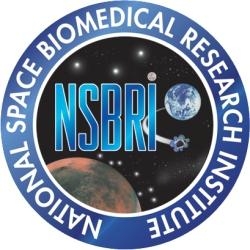Thu, Jun 21, 2012
Each Scientist Will Focus On A Specific Area Of Human Space Flight
The National Space Biomedical Research Institute (NSBRI) has enlisted seven of the nation's top scientists to serve as team leaders in its efforts to protect astronaut health during long-duration spaceflight. Each of the scientists will lead one of NSBRI's seven discipline area research teams focused on specific challenges faced by humans in space.

"NSBRI's position at the forefront of space biomedical research will be enhanced with these outstanding scientists serving as team leaders," said Dr. Jeffrey P. Sutton, NSBRI president and CEO. "Their expertise and knowledge will be beneficial to the Institute, NASA and human spaceflight in general. They will play an instrumental role in our efforts to overcome health challenges facing humans while in space and to improve health care on Earth."
The team leaders are responsible for reporting on their teams' research projects and working closely with the NSBRI Science Office and NASA to ensure alignment with operational needs. The team leaders' term is for three years and they must also have a currently funded NSBRI research project.
The NSBRI teams address space health concerns such as bone loss and muscle weakening, balance and orientation problems, neurobehavioral and psychosocial problems, radiation exposure, remote medical care and research capabilities, and habitability and performance issues during spaceflight.
The team leaders and their institutions are:
Cardiovascular Alterations Team
- Dr. Benjamin D. Levine, University of Texas Southwestern Medical Center at Dallas Human Factors and Performance Team
- Dr. Elizabeth B. Klerman, Harvard Medical School-Brigham and Women's Hospital Musculoskeletal Alterations Team
- Dr. Lori Ploutz-Snyder, Universities Space Research Association Neurobehavioral and Psychosocial Factors Team
- Dr. David F. Dinges, Perelman School of Medicine at the University of Pennsylvania Radiation Effects Team
- Dr. Ann R. Kennedy, Perelman School of Medicine at the University of Pennsylvania Sensorimotor Adaptation Team
- Dr. Charles M. Oman, Massachusetts Institute of Technology Smart Medical Systems and Technology Team
- Dr. Gary E. Strangman, Harvard Medical School-Massachusetts General Hospital
NSBRI, funded by NASA, is a consortium of institutions studying the health risks related to long-duration spaceflight and developing the medical technologies needed for long missions. NSBRI's science, technology and education projects take place at more than 60 institutions across the United States.
More News
Circle To Runway (Runway Number) Used by ATC to inform the pilot that he/she must circle to land because the runway in use is other than the runway aligned with the instrument appr>[...]
Aero Linx: National Aviation Safety Foundation (NASF) The National Aviation Safety Foundation is a support group whose objective is to enhance aviation safety through educational p>[...]
At Altitude Of About 250-300 Ft Agl, The Airplane Experienced A Total Loss Of Engine Power On November 6, 2024, at 1600 central standard time, a De Havilland DHC-1, N420TD, was inv>[...]
From 2009 (YouTube Edition): Three Hour Flight Was 'Flawless' -- At Least, Until Mother Nature Intervened For anyone who loves the aviation business, this was a VERY good day. Afte>[...]
Also: AMA Names Tyler Dobbs, More Falcon 9 Ops, Firefly Launch Unsuccessful, Autonomous F-16s The Air Force has begun ground testing a future uncrewed jet design in a milestone tow>[...]
 ANN's Daily Aero-Term (05.05.25): Circle To Runway (Runway Number)
ANN's Daily Aero-Term (05.05.25): Circle To Runway (Runway Number) ANN's Daily Aero-Linx (05.05.25)
ANN's Daily Aero-Linx (05.05.25) NTSB Prelim: De Havilland DHC-1
NTSB Prelim: De Havilland DHC-1 Classic Aero-TV: The Boeing Dreamliner -- Historic First Flight Coverage
Classic Aero-TV: The Boeing Dreamliner -- Historic First Flight Coverage Airborne-NextGen 05.06.25: AF Uncrewed Fighters, Drones v Planes, Joby Crew Test
Airborne-NextGen 05.06.25: AF Uncrewed Fighters, Drones v Planes, Joby Crew Test



